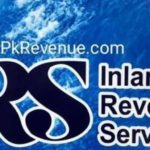ISLAMABAD: Federal Board of Revenue (FBR) has initiated scrutiny of transactions of immovable properties, especially those where amnesty was availed, sources said.
The sources said that the FBR had initiated examination of transactions of sales and purchases of immovable properties during past years, in order to find out the quantum of amount concealed or not declared.
It is believed that huge amount of black money was parked in the real estate business. The buyers and sellers deliberately are not showing actual value of the properties in their agreements.
The sources said that the FBR obtained data under Section 236C, Section 236K and Section 236W of the Income Tax Ordinance, 2001.
They said that the investigation of property transactions would be of past five years.
The seller was required to pay advance tax under Section 236C. Similarly, buyer was required to pay withholding tax under Section 236K. Meanwhile, a buyer is allowed to pay 3 percent income tax to whiten money invested in property purchase. This amnesty was allowed to undisclosed amount that is invested to the extent of values notified by the FBR.
The sources said that the FBR headquarters had transferred thousands of cases of immovable properties to field formation of Inland Revenue.
The FBR collected information of buyers and sellers of immovable properties from property registrar offices of the provinces.
The field formations have been asked to identify those persons who had not filed their income tax returns and wealth statement.
The field formations would initially send those persons who made transactions but had not filed their returns.
Under Section 114 of the Income Tax Ordinance, 2001 the following owners of immovable properties are required to file income tax returns:
— owns immovable property with a land area of two hundred and fifty square yards or more or owns any flat located in areas falling within the municipal limits existing immediately before the commencement of Local Government laws in the provinces; or areas in a Cantonment; or the Islamabad Capital Territory;
— owns immoveable property with a land area of five hundred square yards or more located in a rating area;
— owns a flat having covered area of two thousand square feet or more located in a rating area.
The FBR has also asked the field formations to investigate the payments made for property transactions. The sources said that the FBR collected withholding tax on the notified valuation tables for immovable properties.
The notified values of the FBR were very low when compared with the open market values. Therefore, there was ample chance of concealment in property transactions.
The field formation will ask banks to provide details of identified persons, especially the transactions recorded by the banks for the payment of properties.



